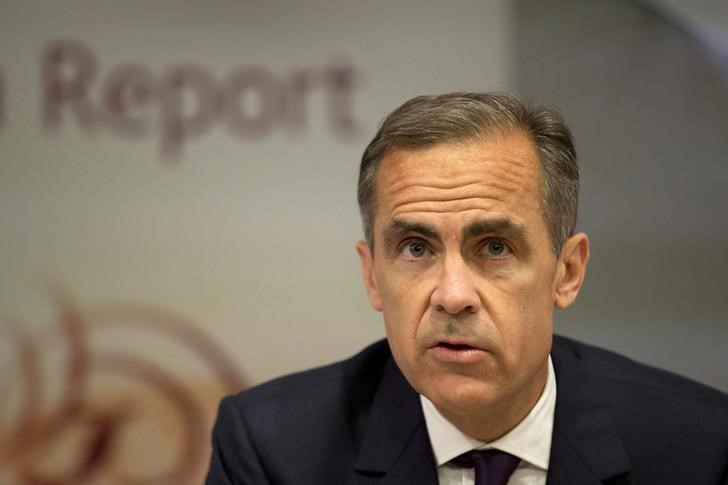Investing.com - Bank of England Governor Mark Carney said there will be no “credit crunch”, in the U.K. following a vote to exit the European Union, because banks will have funds available to lend.
The comments came during testimony to Parliament's Treasury Committee on the financial stability report published by the BoE last week.
Carney said that credit supply will not constrain the economy, adding that demand, not credit availability, is more likely to wane.
Carney also refuted allegations that the central bank attempted to scare voters about the economic risks of a Brexit vote in the run-up to the referendum, describing the allegations as “extraordinary in all senses of the word”.
The BoE said before the referendum that a vote to leave the EU could cause a material slowdown in the economy.
Earlier Tuesday, the minutes of the BoE's meeting held in the wake of the Brexit vote on 28 July and 1 July showed that a decision to cut banks' capital requirements was unanimous.
The BoE lowered a capital requirement for banks, reversing a decision made in March as part of an effort to shield Britain's economy from the fallout from the Brexit vote.
Carney said that by relaxing the rules for banks he wanted to take concerns about credit supply off the table.
The BoE has also made more than £250 billion available for banks to avoid a liquidity crunch in financial markets and said it expects to pump more stimulus into the economy over the summer.
The BoE is to hold its next monthly Monetary Policy Committee meeting on Thursday amid some expectations for a rate cut, but most analysts are expecting a first rate cut only in August.
The BoE could potentially cut interest rates to fresh record lows and step up quantitative easing measures to cushion the economy from the impact of the Brexit vote.
